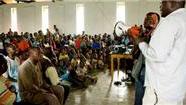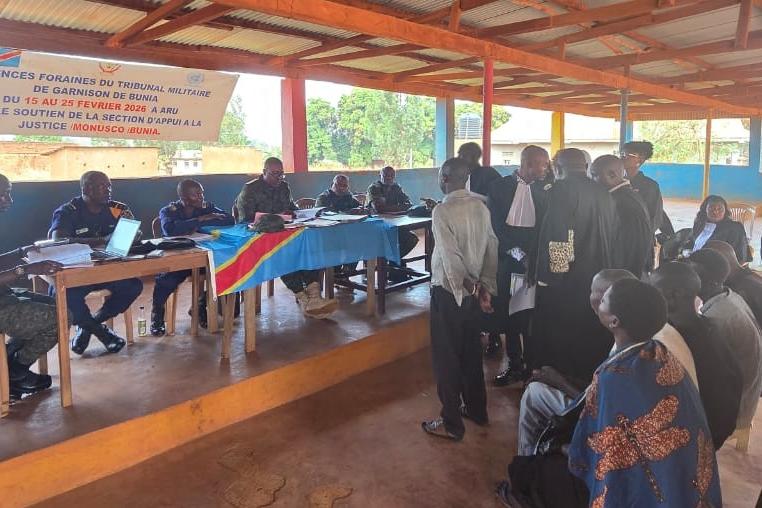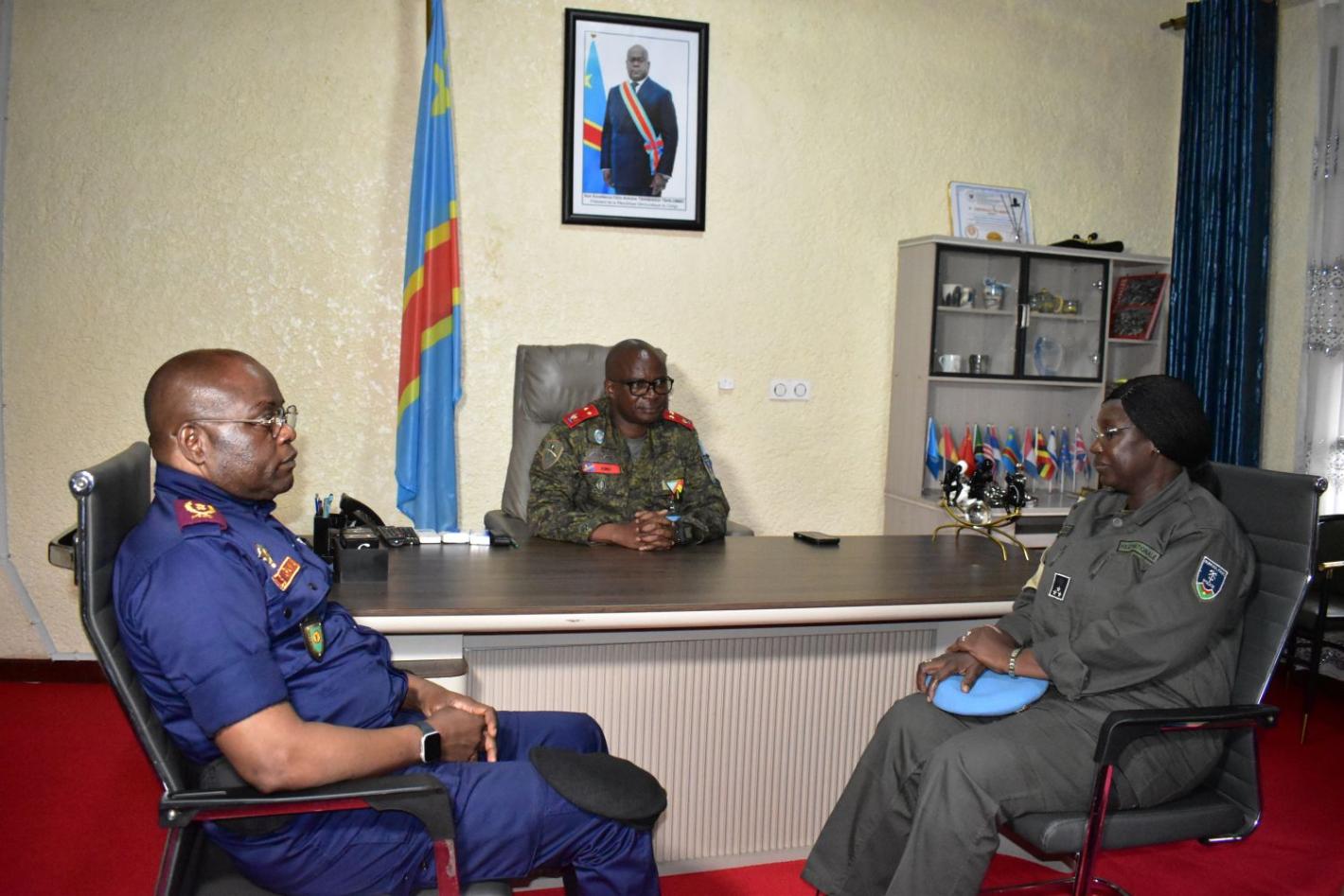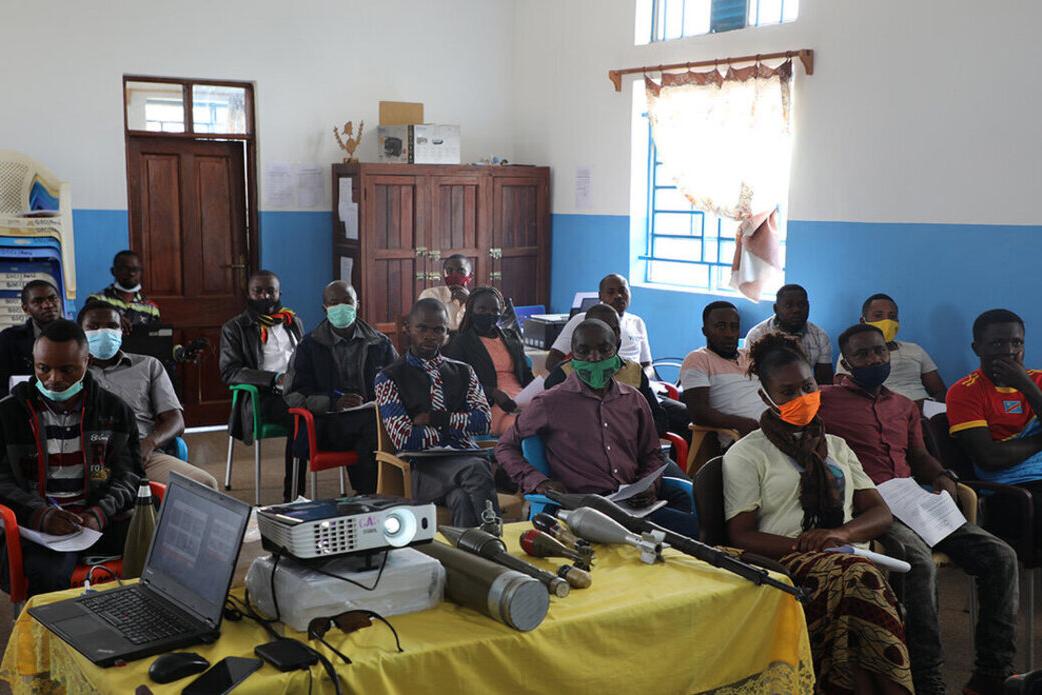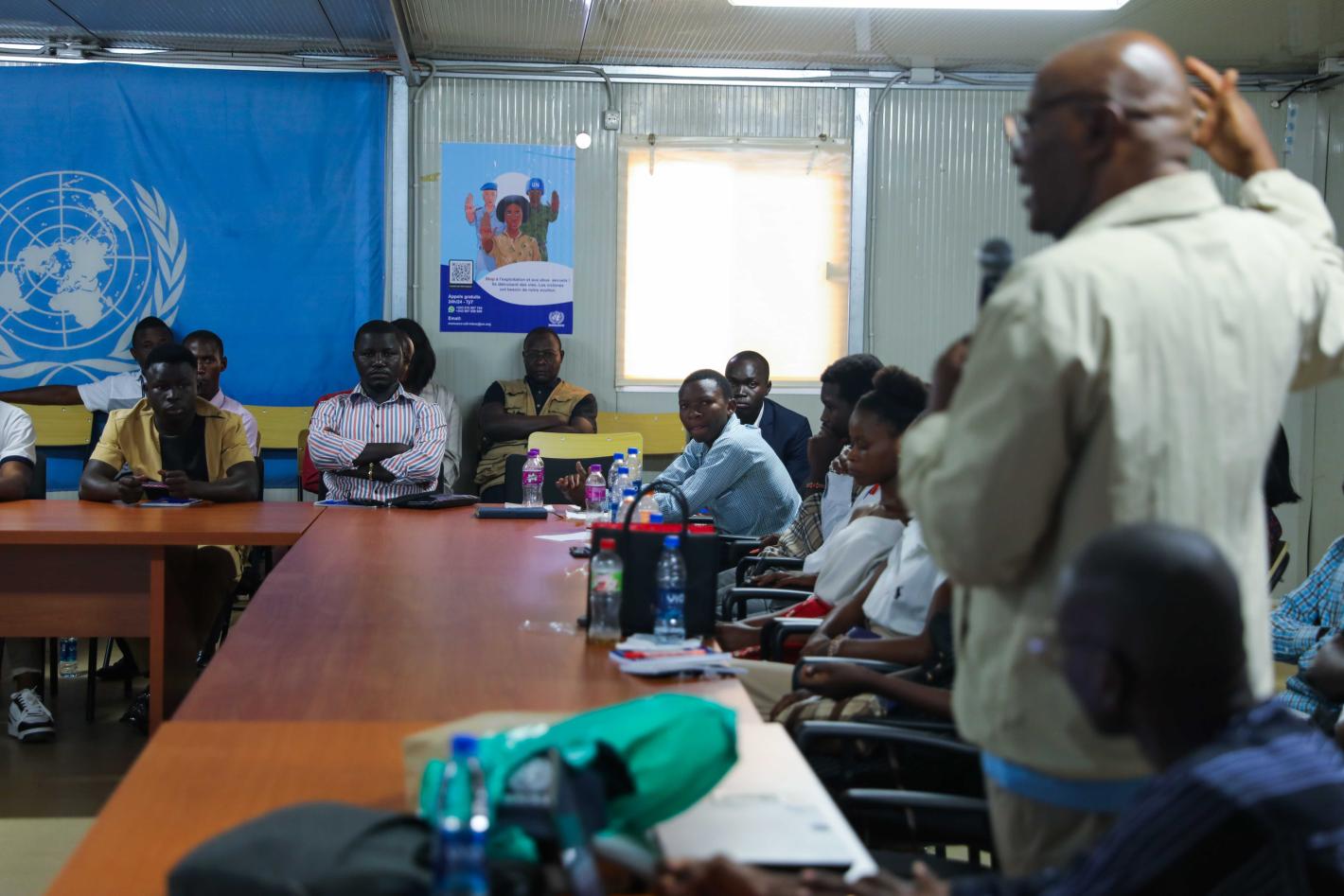Bukavu, 7 March 2011 – Since 2002, the UN Stabilization Mission in the Democratic Republic of Congo (MONUSCO) has facilitated the voluntary return to their original countries of at least two foreign combatants and their dependents each week. In 2010 alone, 1,165 non-Congolese ex-combatants were repatriated through MONUSCO's Demobilization, Disarmament, Repatriation, Reintegration and Resettlement (DDRRR) program, and since the beginning of this year, the UN Mission has completed 286 repatriations.
The successive conflicts in the DRC during the 1990s led to a militarization of the Congolese society. These conflicts not only spawned local self-defense militias whose activities are halfway between politico-military action and criminality, they also brought irregular foreign forces into Congolese territory because of the cross-border dimension of the conflicts. The complexity of the interdependence between this and other conflicts in neighboring countries could not be overemphasized. The presence of these armed forces, most of them uncontrolled, represents a major destabilizing factor.
The signing of the Lusaka cease-fire agreement in July 1999 paved the way for peace. In 2002, MONUSCO, through its DDRRR program, began its efforts to raise awareness among foreign combatants regarding voluntary repatriation.
Repatriation figures
The number of those repatriated through MONUSCO's DDRR program since the process started in 2002 to early March this year is 24,006 people – that is 14,172 ex-combatants and 9,834 dependants. Between January 2009 and March 2010, statistics show that 2,400 Rwandan combatants and 2,575 dependants were sent to their country and that nearly half of them were located in North Kivu. With an average of three combatants surrendering each day, the DDRRR program in South Kivu, registered 978 foreign combatants between March 2010 and March 2011. During the first quarter of 2011 alone, more than 138 combatants with 148 dependents showed up at transit centers in South Kivu province for voluntary repatriation.
Combatants who turn themselves in
A distinctive characteristic of armed group combatants is that they very often are accompanied by their "dependants" during their movements. Generally, they come to DDRRR transit camps after being sensitized either through radio messages or awareness sessions by DDRRR teams. They sometimes surrender on their own to MONUSCO contingents deployed in different areas.
There are those also who are brought to DDRRR teams by elements of the DRC armed forces (FARDC) following their unilateral military operations. During such operations, combatants may be killed along with their dependants. The survivors, often children and women, are abandoned to their own fate or brought by the FARDC to DDRRR teams for repatriation. The conditions in which these survivors are brought to DDRRR centers are sometimes inhumane, and this is due to the lack of proper logistics or ignorance of existing procedures relating to the treatment of combatants and dependants, or lack of knowledge about international humanitarian law for the status of civilians and dependants who turn themselves in, and who should not be treated as prisoners of war.
Repatriation Procedures
When combatants surrender seeking to be repatriated, they show up at MONUSCO DDRRR reception centers, often located in territories with a significant presence of combatants. From these transit camps, combatants are then transferred to proper DDRRR structures in urban areas where they are registered and cared for while the necessary documents are prepared for them to return to their country of origin. In their home country, there are mechanisms in place to organize their reintegration into the society and transition to civilian life.
Other armed groups
The DDRRR program is not just about the repatriation of armed group combatants but it also manages the demobilization of members of local armed groups who wish to return to civilian life or join the country's regular armed forces. For MONUSCO and the Congolese government, each defection is important as it represents a reduction in the capacities of these armed groups to threaten the population.
Tahina Andriamamonjitianasoa / MONUSCO
Biliaminou Alao/ MONUSCO


